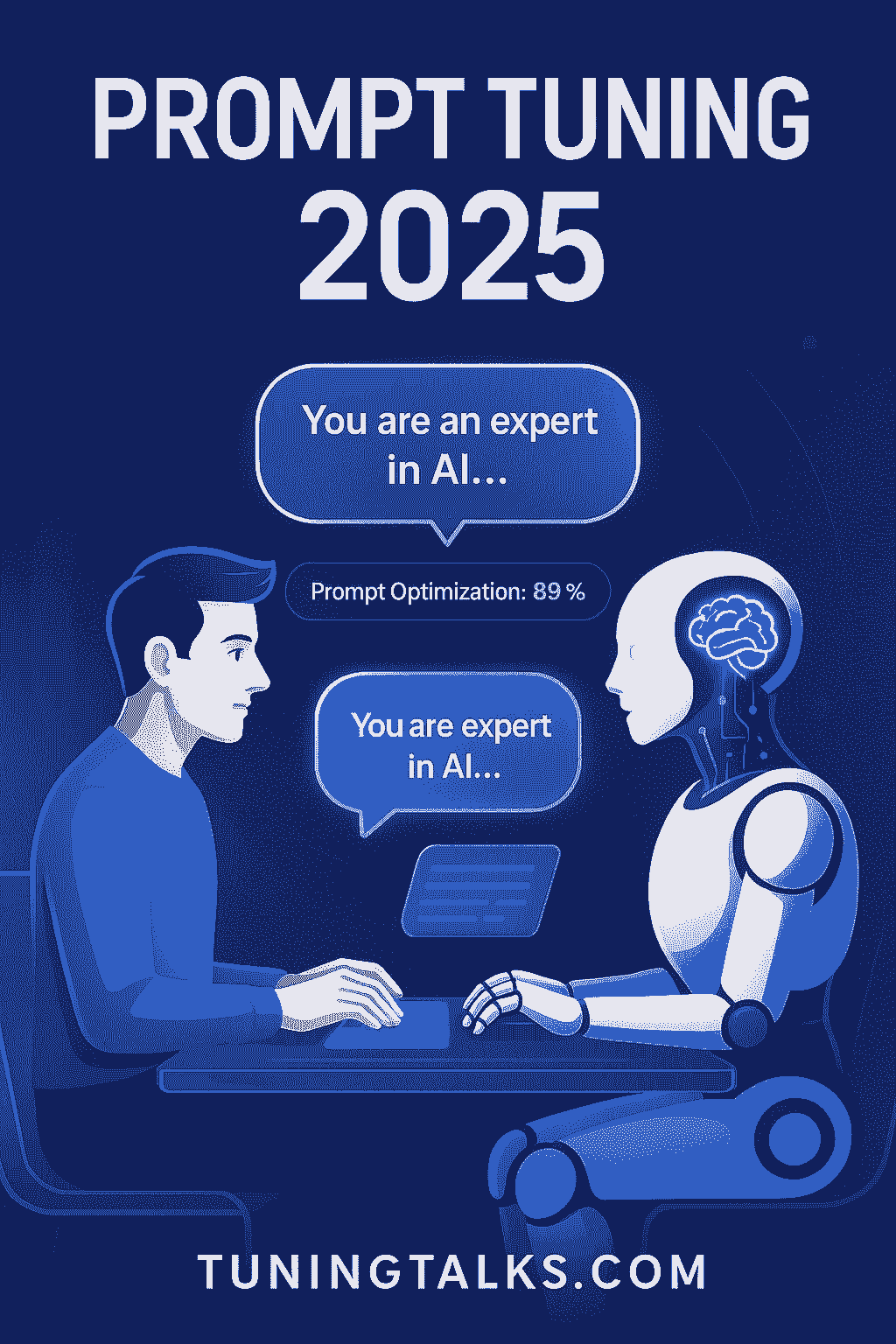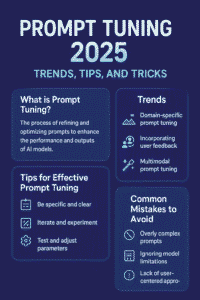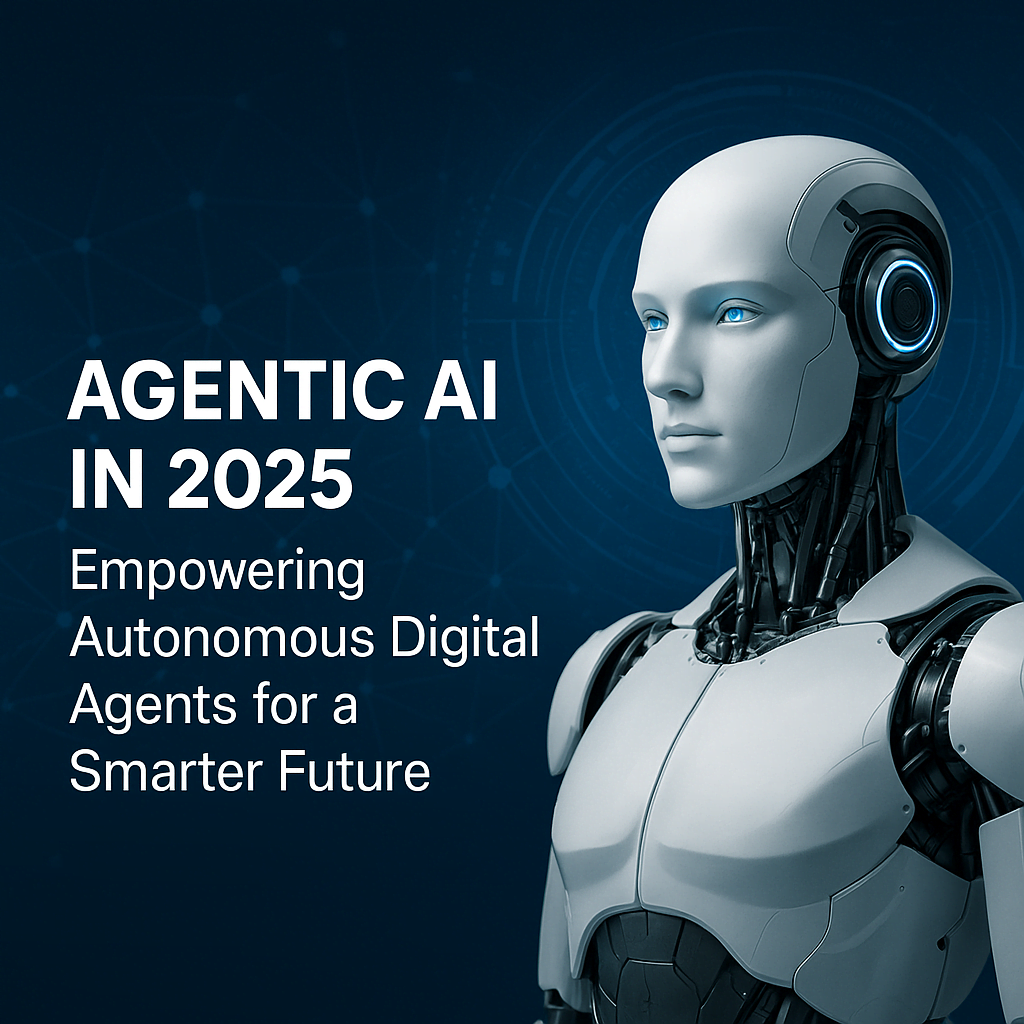Introduction
Prompt tuning has become an essential skill in effectively interacting with AI models. As we move into 2025, staying updated on the newest trends and techniques in this area is crucial for maximizing AI performance. This guide will explore key trends, practical tips, and answer common questions about prompt tuning.
Key Trends in Prompt Tuning for 2025
1. Dynamic Prompt Tuning
Modern AI models now offer real-time feedback on prompt clarity, bias, and effectiveness, allowing users to refine their prompts interactively, leading to significantly better outputs.
2. AI-Assisted Prompt Generation
A cutting-edge approach is leveraging AI itself to create customized prompts, significantly improving precision and context alignment.
3. Cross-disciplinary Prompt Engineering
Prompt tuning now integrates insights from linguistics, psychology, and computer science to develop clearer, more contextually accurate prompts.
Practical Tips and Tricks for Effective Prompt Tuning
1. Assign a Clear Role to Your AI
Clearly defining the role, such as “You are a digital marketing expert,” helps the AI deliver more targeted and professional responses.
2. Use the ‘Chain of Thought’ Approach
In complex tasks, instructing the AI to think step-by-step improves the accuracy and comprehensiveness of responses.
3. Set Explicit Constraints
Clearly defining limitations like response length or writing style aids the AI in providing precise, tailored outputs.
4. Provide Examples
Supplying examples helps the AI understand the desired format or style, significantly improving response quality.
5. Employ ‘Lazy’ Prompts
Sometimes, concise and less detailed prompts yield excellent results, especially when the AI model is already contextually aware of the subject.
Frequently Asked Questions
Q: Is prompt tuning still relevant in 2025?
A: Absolutely. Although advanced models understand natural language better, effective prompt tuning maximizes output quality and precision.
Q: Are there tools available to help create prompts?
A: Yes, tools like Orq.ai provide insights and structured techniques for efficient prompt tuning.
Conclusion
Prompt tuning continues to be a critical skill in harnessing the full capabilities of AI models. By keeping up with the latest trends and applying advanced tips and tricks in 2025, users can significantly enhance AI model performance, leading to more accurate and high-quality outcomes.
For more insights and hands-on tutorials, visit TuningTalks.



